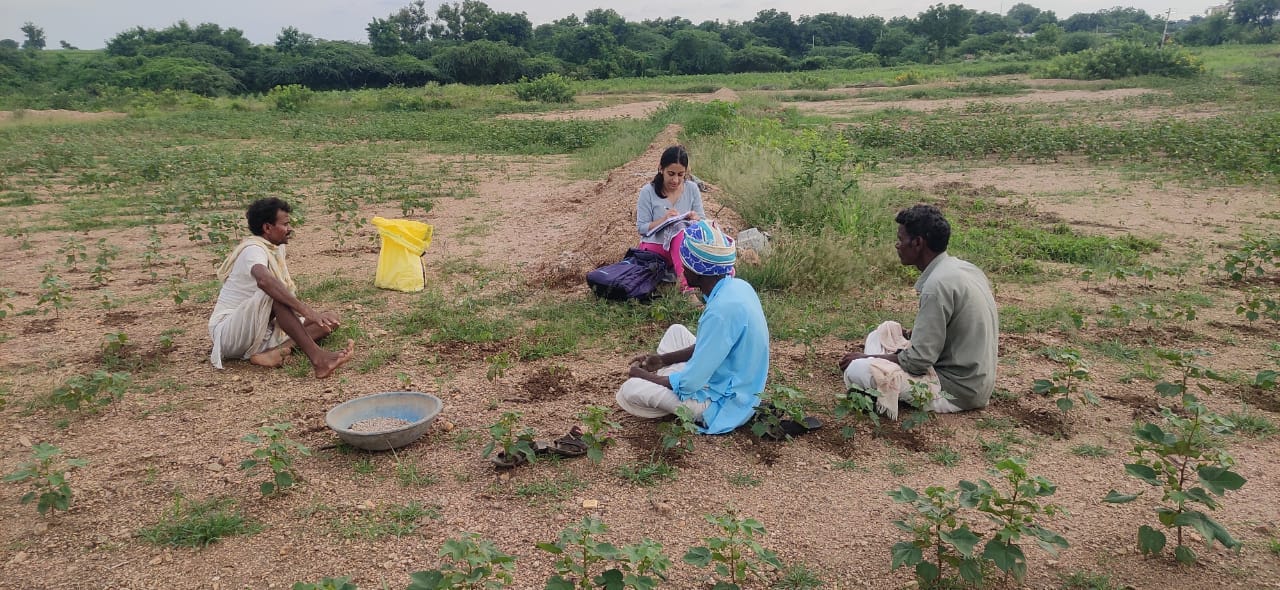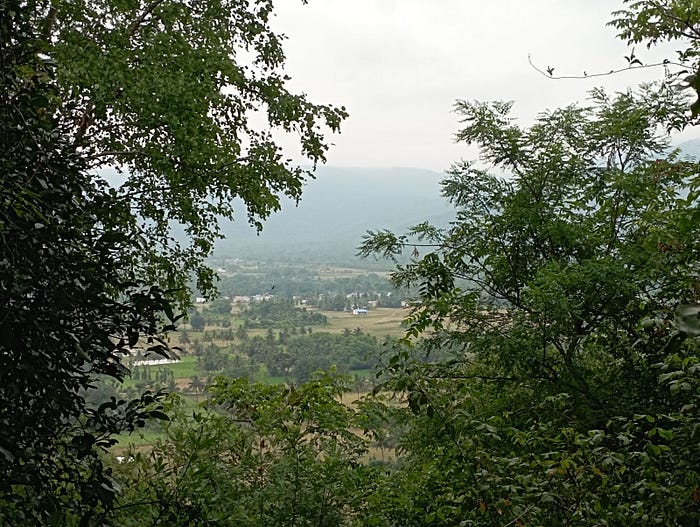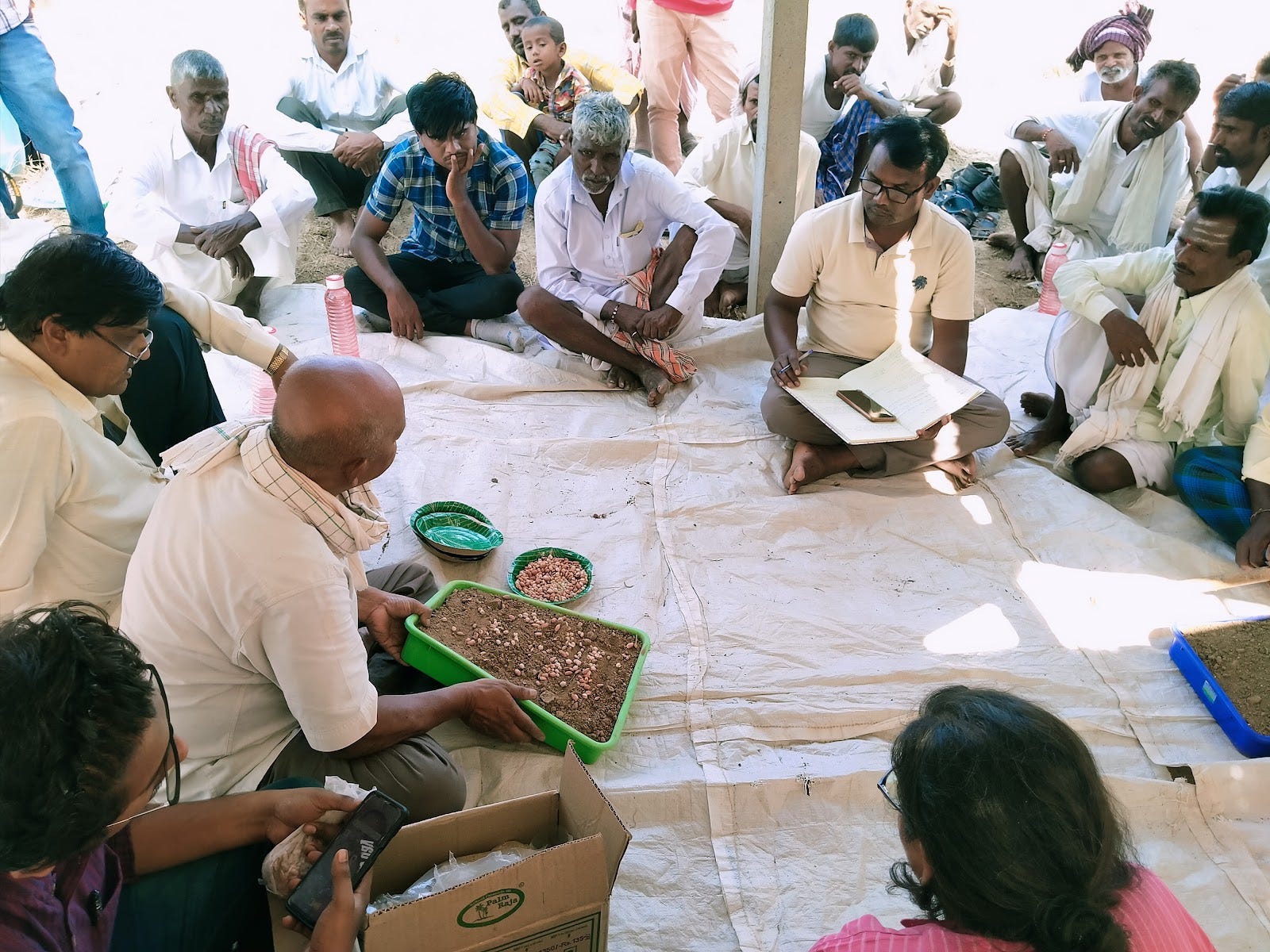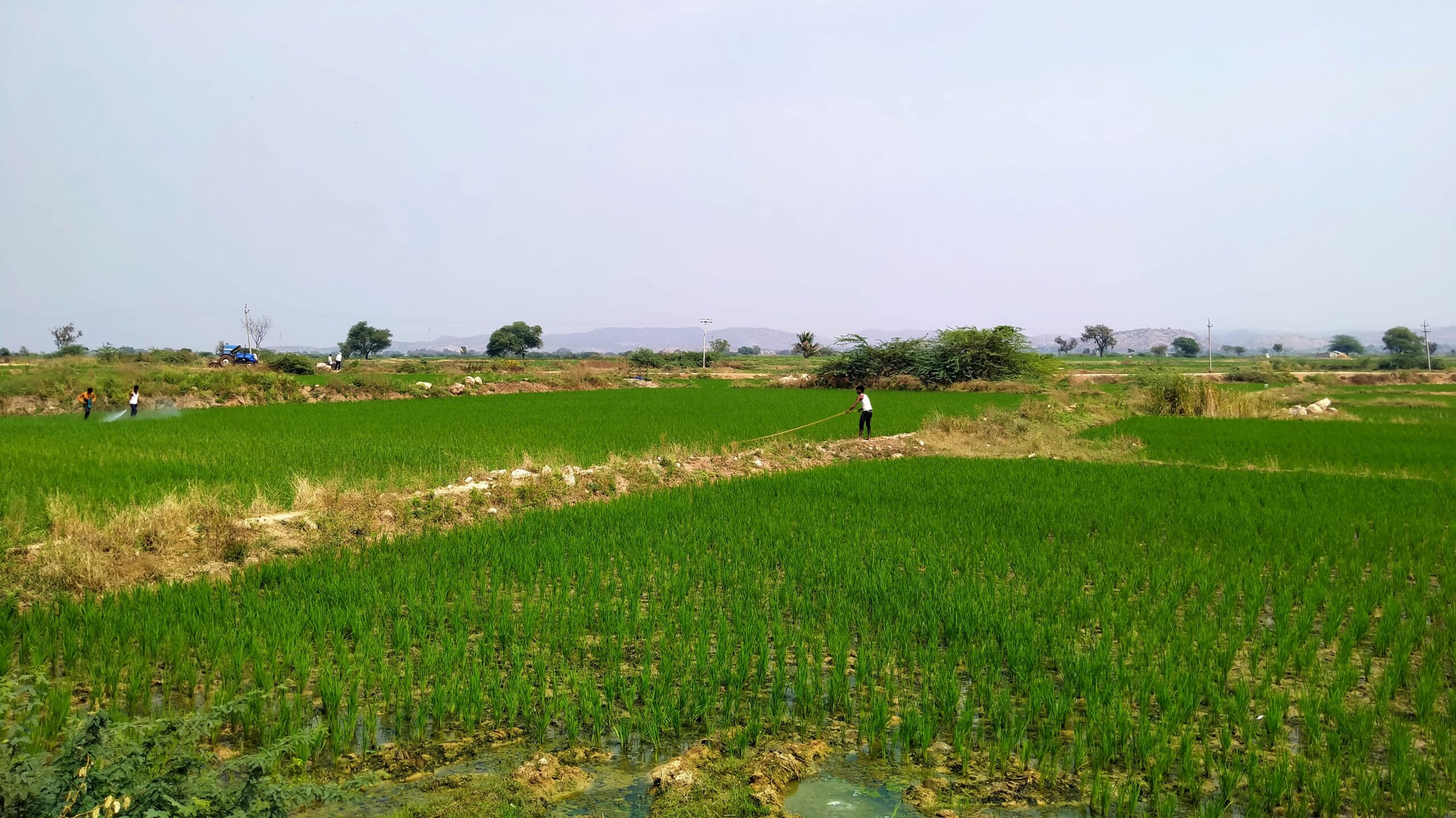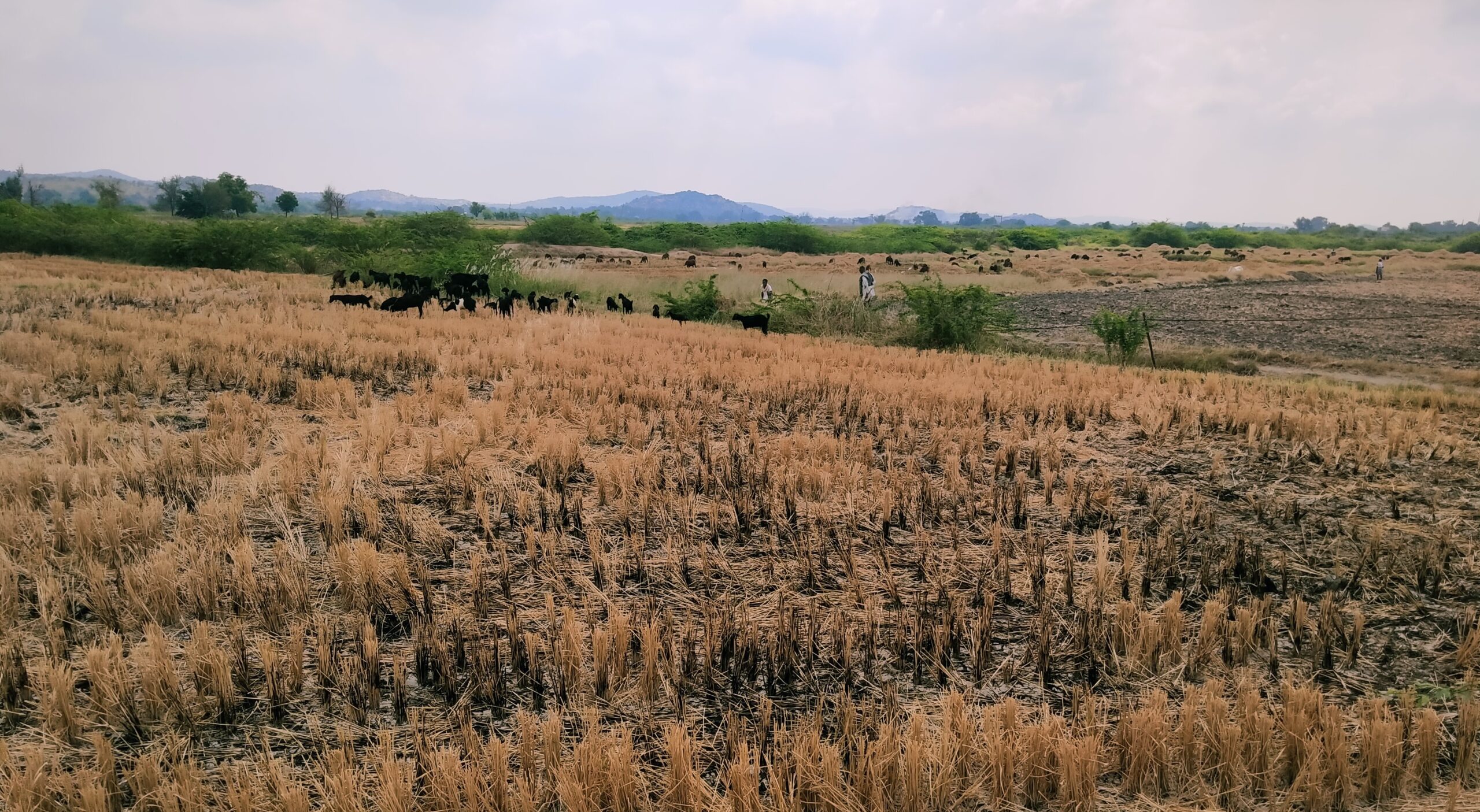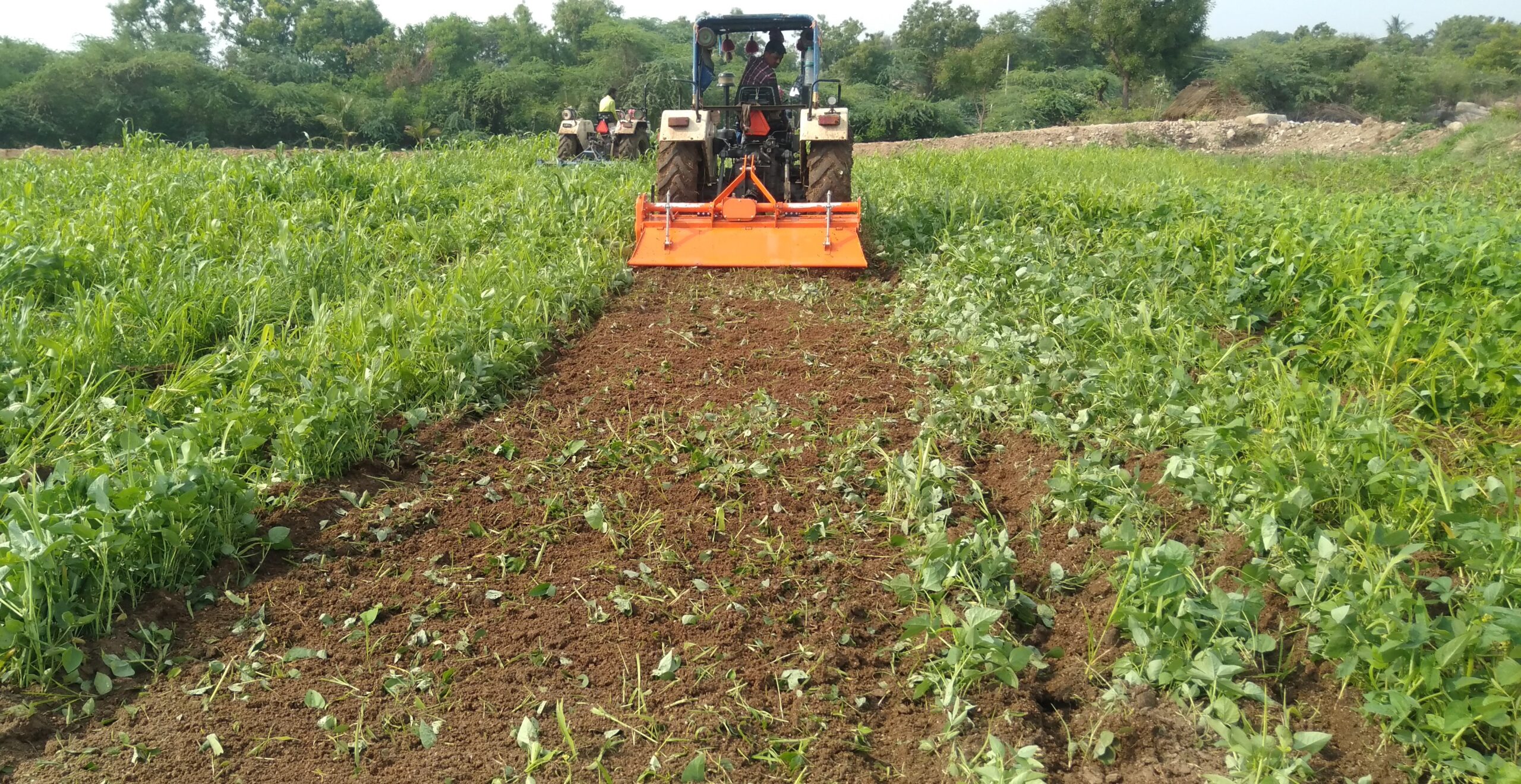Reimagining WUCS in Karnataka: Towards Inclusive and Sustainable Water Governance
Photo credits: Prarambha
Managing water fairly requires more than just infrastructure—it needs collective responsibility and farmer participation. When farmers share water, their relationship extends beyond growing crops into growing trust, resilience, and a stronger future for their land. Across the country, diverse models have been developed to promote the equitable distribution of water resources. These approaches aim to emphasise community involvement and collective decision-making to address water challenges.
Water Users Cooperative Societies (WUCS) are one such model implemented in Karnataka as part of participatory irrigation management. The primary goal of a WUCS is to manage water releases by respective local Jal Nigams under the water resource department, through maintenance of last-mile irrigation infrastructure and water governance.
By adopting collective management, WUCS can reduce costs, boost land and water productivity, and strengthen water governance. As a farmer-led institution, WUCS are meant to ensure better access to water and help farmers resolve conflicts over water distribution within the community. As a result, they can improve water use efficiency and promote sustainable agriculture.
Although they are legally mandated in the state, WUCS struggle with mismanagement, weak institutional support, and lack of farmer participation.
Background: WUCS and the Move to Community-led Irrigation
Almost 30% of Karnataka’s agricultural area is irrigated by canal irrigation projects. The state has seven major river basins, including the Cauvery, Krishna, and Tungabhadra basins, and irrigation systems covering 40 lakh hectares, with plans of expanding this to 61 lakh hectares. With such a vast system, sharing water equitably among farming communities is both a challenge and a necessity.
Participatory water governance aims to ensure that all stakeholders in the command areas of irrigation projects, particularly farmers and local communities, have a voice in decision-making. This approach emphasises decentralisation, collective management, and transparency in water allocation. Various models of participatory water governance exist across India, tailored to regional needs and socio-economic conditions.
The Karnataka Irrigation Act of 1965 set the legal foundation for Water Users Cooperative Societies (WUCS). This pioneering act by Karnataka aimed to transform irrigation from a government-controlled system into a cooperative effort that makes water management more democratic, efficient, and sustainable.
The societies operate at different levels, from local distributaries to state-level project committees. Their goal is to help farmers take charge of managing, operating, and maintaining irrigation systems to ensure fair and efficient water distribution. They also serve as the main link between farmers and the government, working to close the gap between available irrigation potential and its actual use.
How do WUCS work?
- Membership: WUCS membership is granted to landowners within that jurisdiction who meet specific criteria, including financial contributions, legal ownership, and adherence to WUCS bylaws. Primary membership is typically for farmers relying on canal irrigation.
- Scale: Typically, WUCS are established at a 500-hectare level, while a Local Management Unit (LMU) functions at a 1,000-hectare scale to enhance governance efficiency.
- Governance structure: A WUCS is made of a 13-member Managing Board elected based on reservations under the Karnataka Cooperative Societies Act, 1959. The overall organisational structure extends from the field to state level.
- Financing: WUCS sustains operations through member contributions, government grants, and funding support for infrastructure, water management, and capacity-building.
Ground Realities of WUCS and Their Long-term Sustainability
In Karnataka, the Command Area Development Authority (CADA) is responsible for forming WUCS with guidance from the Water and Land Management Institute (WALMI), Dharwad. These organisations are meant to strengthen WUCS. While they provide initial support, challenges arise in ensuring long-term sustainability.
Despite the goals of WUCS, their actual presence remains largely nominal across Karnataka. A large number of WUCS are yet to be constituted. Among the existing ones, many are inactive.
Out of a potential 6,000 WUCS, only about 3,600 are registered, and 2,800 have entered into MoUs with the Water Resources Department (with entities like Karnataka Neeravari Nigam Limited, Krishna Bhagya Jala Nigam Limited, and Cauvery Neeravari Nigam Limited).
For instance, in Yadgir district’s Narayanpur Left Bank Canal command area, a 2021 news report indicated that only 10 out of 524 WUCS were actively working. Lack of regular meetings, inadequate financial management, limited awareness, and minimal farmer engagement have weakened WUCS’ role in irrigation management.
After the initial support for the formation of the society, WUCS are expected to function on their own, manage funds, maintain last-mile irrigation infrastructure, and decide on water sharing rules and conflicts after the initial training and handover. The experiences across the country in building cooperatives suggest a longer incubation period to build sustainable farmer collectives.
In some regions, the absence of trust between farmers and WUCS office-bearers has led to non-payment of water cess, resulting in financial instability and an inability to maintain irrigation infrastructure. Even in areas where WUCS has been formally registered, its impact remains minimal due to systemic challenges. Political interference and dominance by influential head-end farmers leave small tail-end farmers at a disadvantage.
Thus, without sufficient capacities and incentives to function, many WUCS are unable to fulfil their intended role in water management.
For WUCS to become truly functional, stronger institutional mechanisms, regular capacity-building programmes, and enhanced accountability measures are necessary to rebuild farmer trust and improve participatory irrigation management.
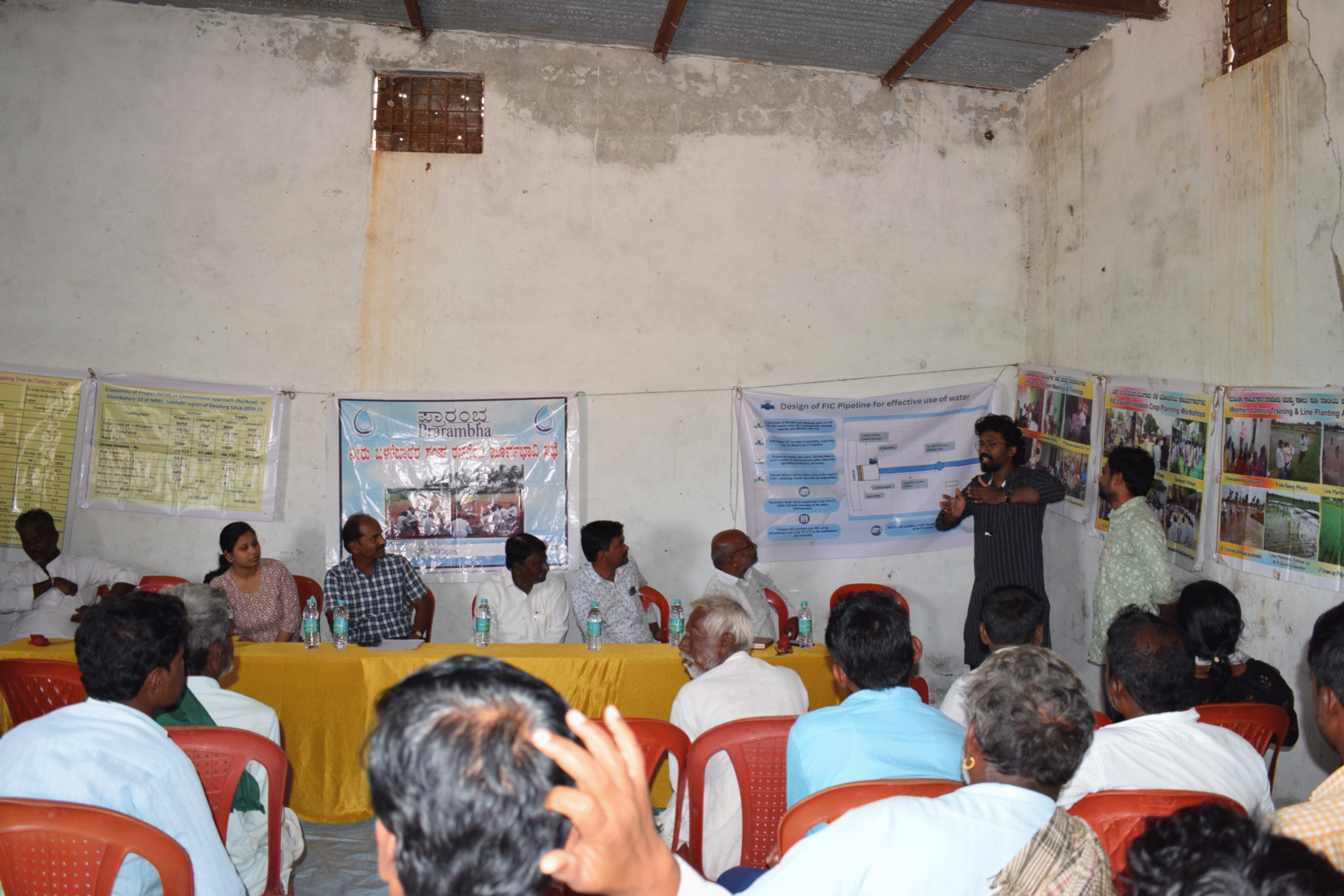
A WUCS meeting in progress. Photo credits: Prarambha
How Can WUCS Function Better?
To truly empower the WUCS, the deep-rooted issues that keep them from functioning effectively need to be tackled. Poor infrastructure, lack of regulation, and weak incentives for head-end farmers hinder effective water governance, while limited management capacity and internal conflicts—including gender bias and disputes between head- and tail-end farmers—further weaken the system. Many members, especially those from marginalised communities, are often sidelined as they lack the knowledge and/or power to make decisions.
A systematic, step-by-step approach is needed to build a strong, democratic WUCS from the inside out, shift the power dynamics, and give everyone a genuine voice. This can be done through:
- Capacity-building programmes: Farmers need to be equipped with better skills on managing the WUCS, resolving disagreements, and on providing services around sustainable land and water management so everyone feels empowered and incentivised to participate.
- Strengthening farmer participation: Active participation is the key to building effective WUCS, as it fosters ownership and ensures the society addresses the actual needs of its members. Farmers need to be able to bring their real-world field problems to the table in the meetings, and discuss and find solutions within their existing system.
- Efficient water distribution systems: Advancements like smart irrigation are needed for water efficiency. Instead of open canal irrigation, WUCS can supply water through piped infrastructure and water-efficient irrigation systems, which deliver water directly to crops. Canals and waterways need to be well-maintained and regularly upgraded to prevent leaks and ensure water efficiency. Reliable water supply to every farmer is key to their ownership and participation in decision-making.
- Transparent financial management: For WUCS to build trust and operate effectively, detailed and easy-to-understand records need to be made of all income and expenses. A shift to digital accounting systems that allow everyone to see where the money’s going can ensure fairness and accountability.
- Community awareness and engagement: Awareness campaigns can help farmers understand the importance of water management and spark a sense of shared responsibility for water. By building a strong sense of community ownership, farmers would be able to take pride in protecting and managing water resources.
- Leveraging technology: Technology for labour-saving and water efficiency is required to improve water management in WUCS.
- Collaboration with government and NGOs: Partnerships with government bodies and NGOs for technical support, funding, and guidance are important. Government schemes that support sustainable water management practices should be leveraged, and different agencies such as the irrigation department, CADAs and Jal Nigams need to work together to establish sustainable incubation and handover mechanisms to WUCS. Additionally, there is a need for more budgetary and human resource provision in CADA and WALMI.
- Donor support: Donors should invest in sustainable resource creation to enable WUCS to become self-sufficient. One effective approach is to finance farmer producer organisation (FPO)-like investments in WUCS and establish service provision models such as Custom Hiring Centres (CHCs), Bio-input Resource Centres (BRCs), and organised labour groups. This not only empowers farmers with access to essential services but also promotes long-term financial sustainability of the WUCS.
There is an urgent need for all stakeholders to come together in envisioning, enabling, and evidence-generation around model WUCS. Learning from successful models (such as Kagekodamagge and Kulekumatagi WUCS) can also help understand the way forward. With these improvements, the societies will be able fulfil the goals with which they were established.
Acknowledgements
WELL Labs’ work to strengthen the WUCS is supported by CLARE’s CLARITY project, IHE Delft (Remote Sensing for Communities), Nvidia CSR, and DCB Bank CSR across different villages in Karnataka’s Raichur district.
About CLARE
CLARE is a UK-Canada framework research programme on Climate Adaptation and Resilience, aiming to enable socially inclusive and sustainable action to build resilience to climate change and natural hazards. CLARE is an initiative jointly designed and run by the UK Foreign, Commonwealth and Development Office and Canada’s International Development Research Centre. CLARE is primarily funded by UK aid from the UK government, along with the International Development Research Centre, Canada.
About CLARITY
Climate Adaptation and Resilience in Tropical Drylands (CLARITY), a research project under CLARE, is building equitable, sustainable, and climate-resilient development pathways in tropical drylands. This Global South-led project will result in the creation of long-term assets (data and tools) and capacities to achieve transformational change.
Authored by Manjunatha G
Technical review by Syamkrishnan P Aryan, Ashima Chaudhary
Edited by Archita S
Follow us and stay updated about our work:

